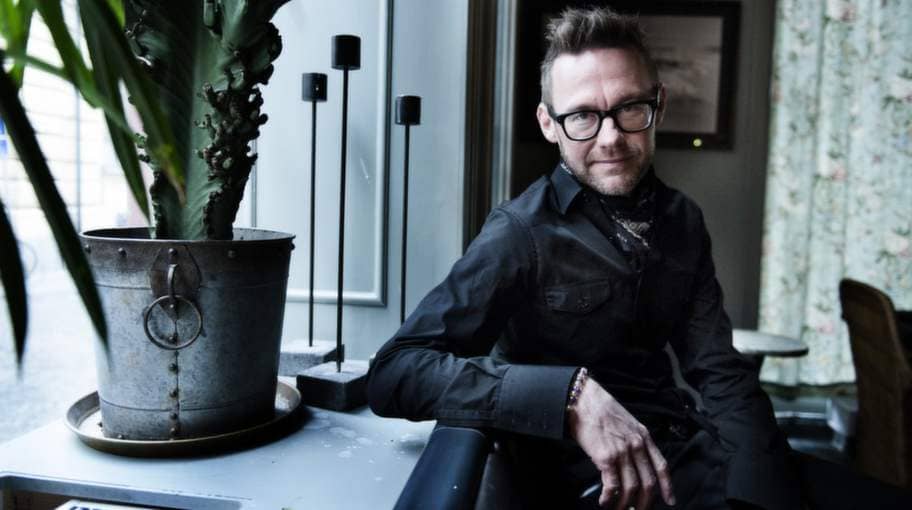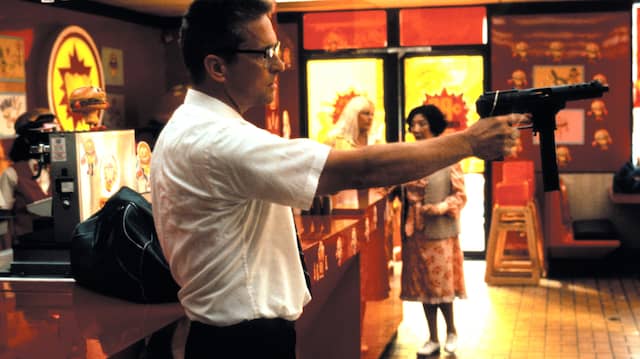uschwitz, Chernobyl and black metal in Ukraine
4
Travel articles. David Nilsson writes in a travelogue about how he, together with friends from Näste 6, visited from alleged death camps in Poland to national socialist black metal concerts in Ukraine.
The journey started with members of fight group 601 and a sympathizer decided to drive down to Ukraine to attend the annual black metal festival Asgardsrei in Kiev. Once we were on our way down and passed through Poland and Ukraine, we also decided to visit Auschwitz 2 Birkenau, which was one of the world's most famous so-called "extermination camps". We also decided to take the opportunity to visit Chernobyl before the festival, when we were still in Ukraine.
On December 9 it was time to start going down, everything was packed and ready. We decided to drive through Sweden all in one day and that we would start from Luleå at 03:00 at night, and then go to a well-known face in Näste 3 where we would sleep over.
That said, we arrived at our Skåne companion around midnight. In the morning when we woke up we got freshly laid eggs from the farm's henhouse.
A good and hearty breakfast later so we were on the road again. But just before we started the car our host came and gave us homemade organic tee of mint. Remember this tea, because there will be a story of the latter.
The journey through the EU countries was not so much to write about, it was mostly country road and forest. Except when we came to Poland. Everyone in the car noted that it felt like some villages and towns in Poland seemed to burn their garbage in the chimney. Because it really smelled like the kid in some places in the country. In contrast, Norrland's forests appeared as a heavenly kingdom of fresh and good air, something that is rarely reflected on when it feels perfectly normal in their home.
Once inside Poland we had booked into a hostel in Wroclaw, where we had a good pub with good food right next to us.
"The Holocaust" up close
When we woke up the next day, it was time to head to the first destination of the trip: Auschwitz 2, Birkenau - to see what the world-famous "Holocaust camp" looks like.
READ MORE: "The Holocaust" is a scam!
Once outside the camp the mood and mood were good, but at the same time tense. There were a lot of buses on site with schoolchildren being locked in as if it were a slaughterhouse going high.

Once inside the camp, we noticed that everyone with guides had a number that everyone in that group shared. All "one" would with the # 1 group, all "two" with the # 2 group and so on. The highest number I could see was # 70 that a small group of 7-10 people had. Photo: Northern Front.
The first thing we saw when we came inside the walls was a large box where visitors could optionally donate money for Jewish purposes. As we passed the big box we saw a large map of Birkenau where all stations were said and where the so-called "mass gases" were alleged to have occurred.
The picture below represents a similar map, though at another location in the labor camp, when my first picture did not turn out so well:
Map of alleged annihilation activities in Birkenau. Photo: Northern Front. Click for larger image.

This is a picture taken at the camps where Jews and non-Jews lived and had their sleeping space. A little further to the right was a family camp where only Jewish families resided. Photo: Northern Front.

Treatment plants. Photo: Northern Front.

The building on the left was a shower room where the workers were given new clothes and where clothes were washed. To the right are demolished housing. Photo: Northern Front.

Combs, clothes and various hygiene products inside a booth in the shower building. Photo: Northern Front.

Child being brought into the shower building by a guide. Photo: Northern Front.
When we had been inside the shower, we approached the "gas chambers". Now it was time, one of the highlights of the whole trip. Something you have been looking forward to for years.
As an activist in the Nordic resistance movement, there have been mass discussions with people in the city about the "Holocaust", as the victorious forces have driven a massive propaganda lie against the German people after the fall of the Third Reich. At last you could say that you were there yourself and show the pictures from the "death camp".
We could see the "gas chambers" in the distance and cross-reference with the map. We expected it to be like in Auschwitz 1 where there was still some form of building left, but all we could see were ruins. When we arrived, we could see with our own eyes how the victorious powers' propaganda lie fell into ruin (although of course this was already long overlooked).

A "gas chamber" - no trace of Berlin blue on the walls here! Photo: Northern Front.

Another so-called gas chamber. Photo: Northern Front.
To summarize the whole experience in Birkenau, I would say that you were very disappointed, while it was also what you could expect.
If one goes after what globalist sympathizers have said when talking to them on the street, the general opinion seems to be that they should in principle convert to their self-injurious consumerism, become an obedient goy again and leave the national struggle after a visit to these "death camps" ".
It is difficult to understand what is going on in their brains when it is obvious that they have only read one side of the story and how one cannot be curious enough to find out the other side of the matter.

Goodbye "death camp"! Photo: Northern Front.
I personally was strengthened in the belief I have after my stay, something that I had also considered. We left the work camp with the self-esteem and mood at the highest peak. Now it was time to go to Ukraine!
Smuggling tee to Ukraine
Do you remember the mint tea we got from a friend in Näste 3? It is now that it comes into the picture.
We arrived at the Polish-Ukrainian border at 20:00. Since nothing was in English, we went to one of the customs guards to ask in which file we would stand, and after much if and but we found the right end.
After waiting for about three hours in a multi-kilometer queue of trucks and cars standing idle, it was finally our turn to get our passports stamped so that we could drive into Ukraine. But not before our car would be searched.
We obviously didn't think of the tea we had in the center console of the car. The man who searched through our stay immediately grabbed the jar and asked something, probably what it was in it.
We tried to say it was tee, but he didn't understand a word of English. The mood became quite tense as we stood there trying to gesticulate and convey the message that it was just tee. But luckily one of my fellow travelers was able to speak a little Russian so we called here and asked him to explain to his crappy Russian that there was no drug we had with us. He laughed at us and walked into one of the nearby offices.
Worth pointing out is that it was full of guards carrying AK rifles on site, which made the atmosphere a little strange to us, especially when none of us really understood what anyone was saying.
But after about 30 minutes he came out again and we were finally able to continue into Ukraine, after which we all breathed and could sit and tended to the situation all the way to the Ukrainian capital Kiev.
Visiting the ghost town The
day after we landed in Kiev, it was time to head to Chernobyl and Pripyat for a guided tour of the ghost town. There was a photo ban at all military control stations so we can start with a collage followed by thoughts about the experience.

We started by visiting an abandoned kindergarten in Chernobyl. Photo: Northern Front.

Beds, toys and communist propaganda. Photo: Northern Front.

Of course, a ghostly doll was found on the ghost town's ghost day. Photo: Northern Front.
The first thoughts about our initial taste of this environment were that it was very beautiful, but at the same time very sad.
When you think of all lives lost and of all those who gave their lives to help with the remediation work, you go into a melancholy mood. We also passed a very nice monument on the way to Pripyat, which was erected to honor the firefighters who were the first to put out the fire in Reactor 4.
On site in Pripyat
After our visit to Chernobyl, it was time to go to the city of Pripyat, which is right next to the reactors, where the majority of all radioactive waste was found after the accident.

Abandoned apartments in Pripyat Photo: Nordfront.

The famous Ferris wheel that was to be inaugurated three days after the accident happened. Unfortunately, it never happened. Photo: Northern Front.

Gas-mask. Photo: Northern Front.

Gymnasium in Pripyat. Photo: Northern Front.
The sarcophagus
After walking around Pripyat, it was time to go to the nuclear power plant itself. In 2017, a new sarcophagus named
New Safe Confinement (NSC) wascompleted by a French company that was assisted by the
European Bank for Reconstruction and Development to raise funds for the project.
Construction began in 2010 and was completed in 2017. The estimated cost of the project is $ 1.5 billion.

Sarcofafen New safe confinement (NSC). Photo: Northern Front.
The Russian woodpecker
When we saw most of Chernobyl and Pripyat, we were offered food in the nuclear power plant's cafeteria. But in order to get there, you had to - just like in many other places in the area - first go into a machine that measured the radiation that you had drawn. If you had too much radiation you could not enter.
Fortunately, everyone in our group had to come in and eat the surprisingly good food that was served. Now the next and final stop was left: DUGA radar station.
DUGA was a radar station right next to Chernobyl used by the Soviet between 1976 and 1989. The station was designed to detect ballistic missiles and the radar could be heard on standard shortwave radios in Europe. Duga had a frequency of 10 Hz which caused the repetitive knocking sound to give it the nickname "The Russian woodpecker". If you want to hear how it sounded, you can do it
here .

Duga radar. Photo: Northern Front.
It was a very cool experience to be in this historic place. Despite the tragic past of the place, it is still beautiful in a way to see how Mother Nature takes back what was once hers.
We were all very pleased with how the trip has gone so far and I would recommend everyone to go to Chernobyl / Pripyat to experience this in real life. But now the last milestone of our trip was left: Asgardsrei 2018.
Anti-Semitic black metal in Kiev
Asgardsrei is a festival held annually since 2015 in Kiev, although the festival has existed since 2012. However, the gigs were held in Moscow and not annually.
The music played on Asgardsrei is usually national socialist black metal, so-called NSBM, with a few exceptions. The festival has become a meeting place for national music lovers from all over the world.
During the course of the festival you got to meet a lot of people from different organizations and from several countries. We met, among others, people from Der Dritte Weg and Blood & Honor, but also some Finnish comrades, which of course is always fun.
The festival lasted for three days where more or less open national socialist bands such as Nokturnal Mortum, Peste Noire, Mablyth, Absurd and Goatmoon played live.

French Peste Noire played live to celebrate their pre-release album, which they just released. Photo: Northern Front.

French Baise Ma hache. Photo: Northern Front.

Russian Mabtth together with the singer from Peste Noire. Photo: Northern Front.
Italian Frangar. Photo: Northern Front.
To sum up the festival and the journey, I would say it was world class. We got to meet a lot of national people on site and it was a brotherhood that you rarely get to know during “regular” festivals.
But if you want to play the devil's lawyer and say something negative about the festival, it must be that some people in the room consumed alcohol in copious amounts. It was also very difficult to get good and publishable pictures of the audience, as a large part of the visitors through the gigs saluted in a way that in Sweden is illegal. The latter can of course also be seen as a plus, especially when you are there.
However, it is not only the community of national that distinguishes Asgardsrei. I would also recommend this festival to anyone who just wants to experience world-class black metal.
In total, we traveled 690 miles during this trip, which began on December 9 and ended with our arrival on December 21.
Worth mentioning is that the tee incident was repeated when we were leaving Ukraine, but this time they searched the entire car and had drug dogs in place.
In the end, it was not very expensive either, given that we shared fuel and hotel costs. As a road trip, however, the trip was a bit long, so next year it will be instead to take the flight down to Kiev.
/ David Nilsson









































